Tag: Electoral Reform

Enforced compulsory voting results in more evenly distributed political knowledge than in voluntary systems
Electoral turnout in UK elections has been disappointing over recent cycles, despite a small uptick at the past two elections. One proposed solution is introducing compulsory voting, though this measure is controversial in countries where voluntary voting is practiced. Dr. Jill Sheppard argues that countries which use compulsion to ensure turnout not only have higher […]
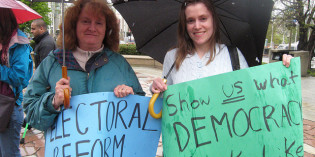
Pre-electoral coalitions increase voter turnout by making elections more decisive
The UK continues to use the First Past the Post electoral system, which is more likely to result in majority governments, but less representative of voter preferences as expressed through the ballot box. It has been argued that not only are proportional systems fairer than majoritarian ones, but that they can increase turnout through making […]

Compulsory voting is not the answer, but fixing an archaic system is
What lies behind voter disengagement? While some blame a crumbling political and electoral infrastructure, others lay the fault at the feet of voters themselves, and posit compulsory voting as the answer. The idea has an enduring appeal for many people, who look enviously at high turnouts in Australia, but is it suitable in the British […]
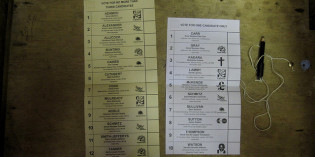
The 2015 General Election was further proof that First Past the Post is not fit for purpose
The 2015 General Election produced an unexpected majority government, however it did so despite the rise of smaller parties such as the Greens and UKIP, who between them only won 2 seats, despite polling around 5 million votes. Chris Terry and Jess Garland argue that the result shows that the First Past the Post electoral […]
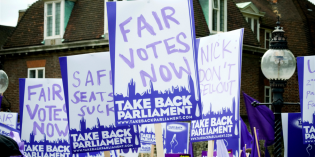
In a multi-party political environment, the First-Past-The-Post electoral system may mitigate polarisation
In this post, Niall Hughes argues that FPTP electoral system performs much better in the context of multi-party politics. Crucially, in a general election a voter’s preferred candidate will depend on the results in other constituencies. As a result, when three parties compete in a general election and voters care about national policy, the problem of polarisation under FPTP […]

The emergence of a genuine system of multiparty politics in the United Kingdom is a positive development for British democracy
In 1955 more than 90% of voters opted to back either Labour or the Conservatives. In 2015, this figure could drop to its lowest ever, even lower than 2010 when only 65% backed the established parties. Many factors lie behind this trend, but it represents a positive development, argues Vittorio Trevitt. An intriguing development that […]

A new method for addressing parliamentary boundaries shows the extent of Britain’s “safe seat” problem
With the the 2015 election upon us, there is much talk of safe and marginal seats, and the main parties approach to each. In this post, Max Goplerud examines a perennial concern about the British electoral system—the prevalence of safe seats—using historical data and a new method for addressing boundary changes to illustrate the extent of […]

Like our students, UK voters should have the option to vote for ‘Re-open Nominations’
In the UK, there is currently no formal provision for voters to make a positive abstention. Chris Game argues that this is a mistake, and that a ‘Re-open nominations’ option should be added to ballot papers, as part of a range of reforms aimed at increasing engagement. Wednesday April 15 was #DeDay – Democracy Day, […]
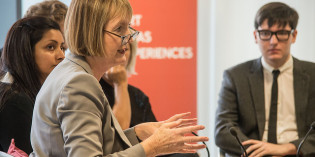
Britain’s voting system is partially responsible for holding back women’s representation
The proportion of women elected to parliament in the UK remains low compared to other countries. In this post, Chris Terry examines the gender balance of parliamentary candidates for the upcoming election, and concludes that some progress is being made. Nevertheless, he suggests switching to a system of proportional representation would increase the descriptive representation […]
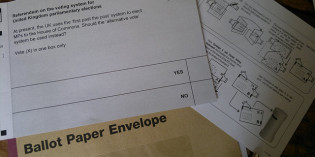
As well as being a democratic outrage, First Past the Post also has additional unseen consequences
It is an article of faith amongst political reform campaigners that the existing First Past the Post (FPTP) electoral system needs to go if we are to improve Britain’s democracy. Here, Ed Straw describes the ‘unseen consequences’ of FPTP, and suggests that organisations such as Office for National Statistics and the Institute For Fiscal Studies to estimate these costs. Similar PostsGeneral election […]


 Democratic Audit's core funding is provided by the Joseph Rowntree Charitable Trust. Additional funding is provided by the London School of Economics.
Democratic Audit's core funding is provided by the Joseph Rowntree Charitable Trust. Additional funding is provided by the London School of Economics.